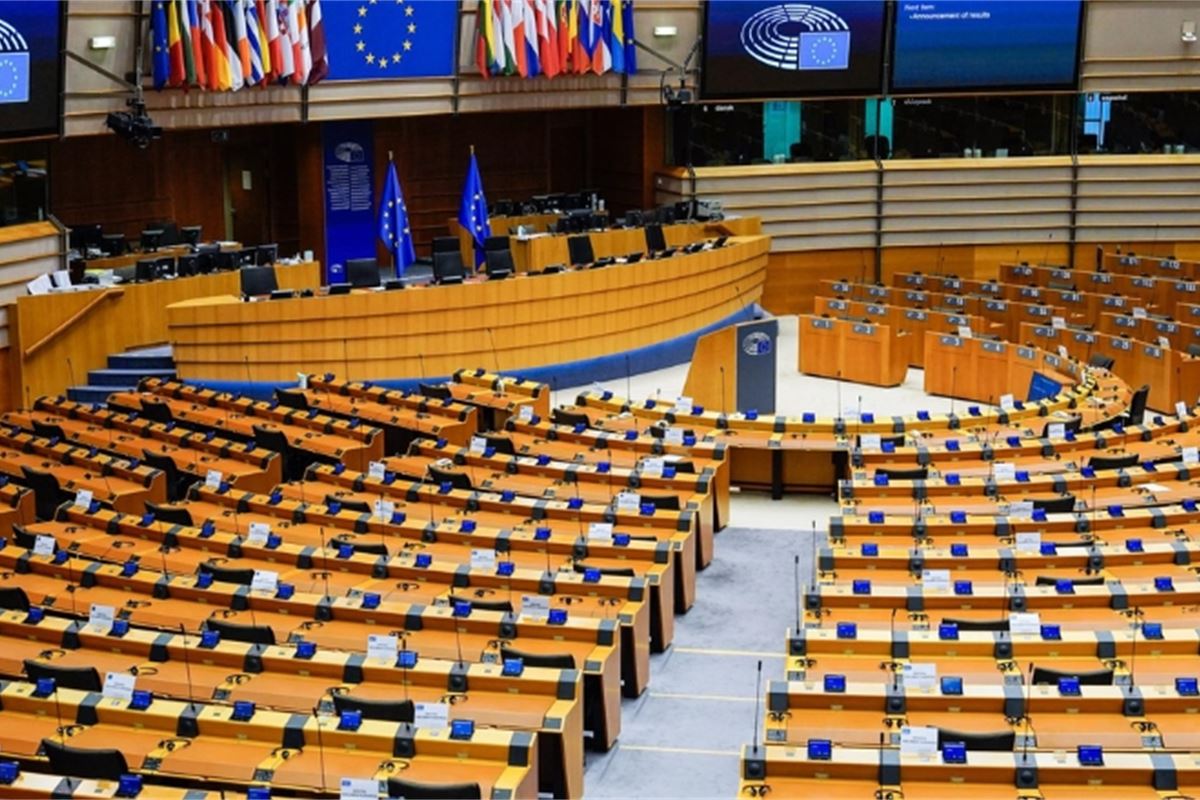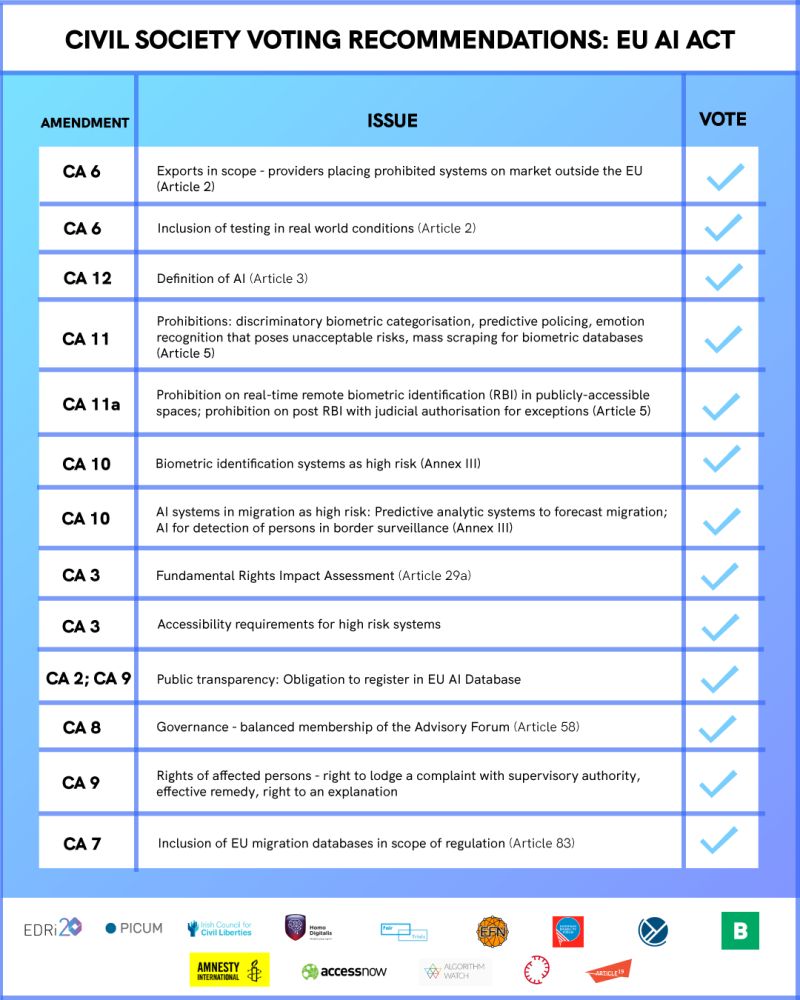Homo Digitalis in Brussels for meetings with MEPs on CSAM
Last week Homo Digitalis travelled to Brussels!
There we participated in awareness raising activities with European Digital Rights regarding the proposed regulation on preventing and combating child sexual abuse (#CSAR) and met with Greek and Cypriot MEPs and their groups in the European Parliament to discuss it!
We would like to thank our members Angelina Barla, Charalambos Daftsios, Haris Kiritsis, George Sarris and Nikoleta Georgakopoulou for their excellent representation!!!
You can read more about our visit to Brussels here.
The European Parliament did not adopt our request for a complete ban on the use of spyware in the EMFA provisions
Yesterday, the European Parliament adopted its proposed provisions for the Regulation establishing a common framework for media services in the internal market (EMFA). Now the proposed texts enter the next legislative phase: the trilogue conferences.
Already last week, together with 80 other civil society organisations, journalists and journalists’ unions, we had sent an open letter to MEPs calling on them to adopt a complete ban on the use of spyware, which is a direct attack on our democratic societies and the protection of Human Rights.
Unfortunately, MEPs did not adopt this proposal, but we have enough time to exert pressure and turn the situation around in the trilogue phase.
In Greece we have seen reputable journalists with very important research work being targeted by such spying software, and it is the duty of all of us to join our voices to protect press freedom and independent journalism.
The European Parliament plenary voted to ban mass biometric surveillance in public places
The European Parliament plenary voted today on its text on the proposed legislation on Artificial Intelligence (AI Act).
The ban on mass biometric surveillance in public places in real time was adopted by the plenary with 335 votes in favour to 235 votes against. We are very proud of the outcome of this vote, despite the fact that there remain provisions in the proposed legislation that pose significant challenges to Human Rights!
But how did our representatives vote? On 25/5, Homo Digitalis had sent open letters to all Greek MEPs, so that no one can claim not to know what is at stake in today’s vote.
We are glad that MEPs Arvanitis, Kokkalis, Kouloglou, Kountoura, Kirtos, Papadimoulis, and Papandreou voted in favour of maintaining the position of the IMCO and LIBE Committees of the European Parliament on the ban. We are concerned that MEPs Vozemberg-Vryonidis, Zagorakis, Kefalogiannis, Meimarakis and Spyraki voted against maintaining this position, and we remain at their disposal to highlight with our positions and arguments the need for a ban on mass biometric surveillance in public places in real time without exceptions.
Nothing has been decided yet, however, as the trilateral negotiations are now beginning!
We call on the IMCO & LIBE committees of the European Parliament to end biometric mass surveillance
Thursday (11/5) will be a landmark day for the protection of Human Rights, as the Internal Market and Consumer Protection Committee (IMCO) and the Civil Liberties, Justice and Home Affairs Committee (LIBE) of the European Parliament vote on the provisions of the proposed legislation on Artificial Intelligence (AI Act).
For more than 3 years now, the European Digital Rights network within the ReclaimYourFace campaign together with partners, including Homo Digitalis, have been actively advocating for a ban on mass biometric surveillance.
Today, we are one step closer to realising our demands and we call on Committee members to vote with the protection of everyone’s rights in mind!!
You can read more about our positions here.
Joint Letter to the European Parliament on the AI Act
The European Parliament is preparing to vote on the proposed legislation on artificial intelligence #AIAct.
In a joint letter today, European Digital Rights and 75 other organisations, including Homo Digitalis, are sending a clear message to protect Human Rights and call on MEPs to pay due attention to the problematic provisions of the proposed text!
In order to do so, MEPs will have to vote:
-to strengthen the framework for the protection of Human Rights,
-on specific accountability and transparency obligations regarding the use of artificial intelligence systems,
-for a ban on the use of AI systems that pose unacceptable risks to the protection of everyone’s rights!
You can read the joint letter here.
Our educational talk on AI & border management
Last month, we received an invitation from the Greek Council for Refugees and the European Network Against Racism Aisbl (ENAR) to speak at the European Parliament Office in Greece about Homo Digitalis’ actions in the field of migration and border management, as well as about the relevant provisions of the proposed EU regulation on AI!
It was a great pleasure to exchange ideas and views with representatives of CSOs, journalists, academics and other stakeholders who were present as well as to discuss the #ProtectNotSurveil campaign of European Digital Rights, Access Now, Platform for Undocumented Migrants (PICUM) and Refugee Law Lab, of which we are members!
We would like to thank the organizers for the great cooperation! Our Board Secretary, Eleftherios Chelioudakis, represented us, presenting our work at the event.
You can learn more about the #ProtectNotSurveil Campaign here.
Homo Digitalis speaks to the PEGA Committee of the European Parliament during her visit to Greece
The European Parliament’s Committee of Inquiry into the investigation into the use of spyware in the EU is in Greece this week!
Homo Digitalis has been invited to appear before it to give evidence on the significant challenges to the rule of law, democracy and human rights. We will be represented at this meeting by the Vice President of the Board, Stefanos Vitoratos.
The Commission of Inquiry will also meet representatives of journalists from InsideStory and Reporters United, who highlighted #Pretarorgate with their investigation, as well as representatives of civil society and political parties, among others.






